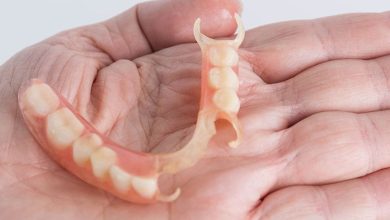6 EFFECT OF TOO MUCH SALT INTAKE, YOU DON’T KNOW
Short-term Effects Of Eating Too Much Salt


Salt is made up of around 40% sodium and 60% chloride. It’s commonly used to add flavor to foods or preserve them.
Sodium is a mineral essential for optimal muscle and nerve function. Together with chloride, it also helps your body maintain proper water and mineral balance .
Yet, despite its essential functions, ingesting too much salt can have unpleasant effects, both in the short and long term.
This article discusses what happens in your body if you eat too much salt in a single meal or day and compares this to the long-term effects of a salt-rich diet
Table of Contents
Short-term effects of eating too much salt
Eating too much salt at once, either in a single meal or over a day, can have a few short-term consequences.
1.Water retention
First, you may notice that you feel more bloated or puffy than usual. This happens because your kidneys wish to maintain a specific sodium-to-water ratio in your body. To do so, they hold on to extra water to compensate for the extra sodium you ate.
This increased water retention may result in swelling, especially in the hands and feet, and can cause you to weigh more than usual.
2.Rise in blood pressure
A salt-rich meal can also cause a larger blood volume to flow through your blood vessels and arteries. This may result in a temporary rise in blood pressure.
That said, not everyone may experience these effects. For instance, research suggests that people who are salt resistant may not experience a rise in blood pressure after salt-rich meals.
A person’s sensitivity to salt is thought to be influenced by factors like genetics and hormones. Aging and obesity may also amplify the blood pressure-raising effects of high salt diets.
These variables may explain why salt-rich diets don’t automatically result in a rise in blood pressure for everyone.
3.Intense thirst
Eating a salty meal can also cause you to have a dry mouth or feel very thirsty. Encouraging you to drink is another way in which your body tries to correct the sodium-to-water ratio.
The resulting increase in fluid intake can cause you to urinate more than usual. On the other hand, failing to consume fluids after eating high amounts of salt may cause your body’s sodium levels to rise above a safe level, resulting in a condition known as hypernatremia.
Hypernatremia can cause water to leach out of your cells and into your blood, in an attempt to dilute the excess sodium. If left untreated, this fluid shift can result in confusion, seizures, coma, and even death.
Other symptoms of hypernatremia include restlessness, breathing and sleeping difficulties, and decreased urination.
Long-term effects of eating too much salt
Eating too much salt over a long period of time may bring on several health issues.
4. Raise blood pressure
Research suggests that salt-rich diets significantly increase blood pressure and that lowering the salt content of a person’s diet can help lower their blood pressure levels.
For instance, two large reviews report that a reduction in salt intake of 4.4 grams per day may lower systolic and diastolic blood pressure (the top and bottom numbers of a reading) by up to 4.18 mm Hg and 2.06 mm Hg respectively.
However, the observed reductions were close to two times larger in individuals with high blood pressure, compared with those with blood pressure in the normal range.
Moreover, these effects are thought to be significantly stronger in salt-sensitive individuals than in those who are not salt-sensitive. Obesity and aging are also though to amplify the blood pressure-raising effects of salt-rich diets.
5. Increase stomach cancer risk
Several studies link a high salt diet to a higher risk of stomach cancer.
A review including more than 268,000 participants suggests that those with median salt intakes of 3 grams per day may have up to a 68% higher risk of stomach cancer than those with median salt intakes of 1 gram per day.
Another study further suggests that people with high salt intakes may have a two times higher risk of stomach cancer than those with lower intakes. Still, this study doesn’t clearly define what is considered high or low salt intake.
The mechanism behind salt’s effect on stomach cancer isn’t fully understood. However, experts believe that salt-rich diets may make a person more vulnerable to stomach cancer by causing ulcers or inflammation of the stomach lining.
6. Effect on risks of heart disease and premature death
The link between salt-rich diets, heart disease, and premature death is still somewhat controversial.
Some studies suggest that high salt intakes cause a rise in blood pressure and a stiffening of blood vessels and arteries. In turn, these changes may result in a higher risk of heart disease and premature death.
For instance, one 20-year study notes that participants who consumed less than 5.8 grams of salt per day had the lowest mortality rates, while those who consumed more than 15 grams of salt per day had the highest.
However, others suggest that high salt diets have no effects on heart health or longevity and that low salt diets may actually increase the risk of heart disease and death.
These differing study results may be explained by differences in study design, methods used to estimate sodium intake, and participant factors, such as weight, salt sensitivity, and the other health issues participants may be facing.
While it’s possible that eating too much salt doesn’t increase the risk of heart disease or premature death for everyone, more studies are needed before strong conclusions can be made.
For any important information please contact us Email GadgetsNg info@gadgetsng.com
[Button id="1"]




I really enjoyed your amazing website. Be sure to keep it up. May god bless you !!!!